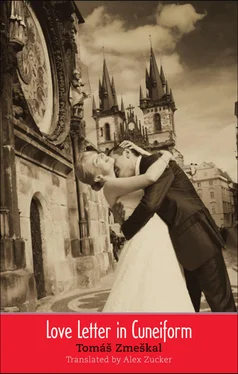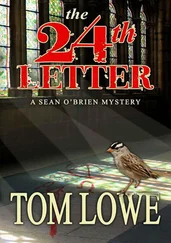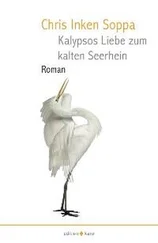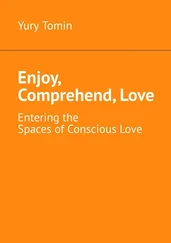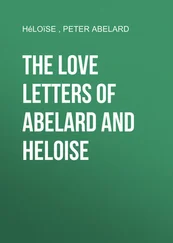“I see,” said Antonín. “Well, let me know if anything new develops. I think he’s friends with one of my patients.”
“Will do. Assuming, that is, I’m lucky enough that he decides to talk to me.” Antonín’s colleague straightened the dishes on his plastic tray, stood up, said good-bye, and carried his dirty dishes to the corner of the cafeteria, where he placed the tray on a small table designated for that purpose.
7. PERSONAL STATEMENT AKA BIOGRAPHY (NINETEEN NINETIES)
Dear Lieutenant,
I was born November 24, 1915, which means I am now more than seventy years old. Before I come to a description of my education, origins, and other information that most of the authorities have required of me during my life in this country, however, I would like to make a few basic points. As you know, I am a retired engineer. As a result, expressing myself verbally does not come naturally to me. Nevertheless, the reason I am writing to you is as follows: I would like to request that your office investigate the activities of Mr. Jánský and submit to me a report on this investigation. It is my belief that any person who tortures another person is committing a misdeed, which is to say a crime, regardless of when and where it takes place. It is therefore my belief that in torturing me Mr. Jánský committed a punishable offense. I would like to stress, however, that it is not his physical punishment I seek; I am not asking that he spend time in prison. Provided my memory is correct, his birthday falls on March 23rd, which means he is a few months older even than me. Having been granted the good fortune to live to this age, I no longer demand either retribution or revenge; nonetheless, your investigation still matters to me. It matters because of my wife, Květa. What you know or do not know is not clear to me. Following the kind advice of you and your colleague, in the following pages I shall attempt to express and impart whatever I can to enable you to commence — or initiate, as you say — your investigation.
The reason for my approaching your office is personal. I feel this is my last chance to make my marriage whole again. I do not know what you have in your files, but the fact remains that my fate, and that of my wife, was, and I am afraid still is, connected in some way or other with the fate or — if you will — the life of Mr. Hynek Jánský.
Hynek and I made each other’s acquaintance in high school, at the so-called reálná škola , for natural sciences, and that marked the beginning of a long-lasting friendship. Some time later, I went off to study civil engineering at the Technical University in Prague while he went to law school at Charles University. The two of us went on weekend trips with friends. We went to pubs, concerts, soccer matches. And then, one day, on our way to some hill or other, a group of girls joined in with us, and one of them was Květa. I admit, she didn’t appeal to me at first sight. I didn’t much like her name — Flower! — or her figure, but she had a nice voice. Both she and her name struck me as so … vulgar. And when I found out in the fall that her favorite flower was dahlias, it didn’t surprise me at all; I had never been fond of them either. I was young, Lieutenant. I was young and I thought love meant loving only roses or hyacinths, and when it came to girls, only Kateřinas or Maries or Barbaras. Certainly not any Květas, Lieutenant, definitely not! And then gradually I realized I was missing something. Yes, I was missing the girl with the ordinary name. Of course I didn’t know it. I wasn’t aware of anything. I wasn’t aware of love. I was just missing something, I was lonely. All of a sudden I felt more alone than ever before. And whenever somebody mentioned they had seen her somewhere, my heart, which back then was strong as a rock, would flutter up into the air before settling back down to earth. And then too, to my surprise, I began to get jealous. I was jealous of everyone who spent time with her while I had to study. I didn’t feel flames of passion. I didn’t feel like I couldn’t live without her. I didn’t feel the agony of a barren planet floating through the empty universe. Nothing like that. But when I asked her to marry me, I thought she would say yes right away, and when she said she needed a week to think it over, I was confused. Instead of going home and attending my lectures the next day, I walked the city for two days, and the third day I fell asleep on a bench in Letná Park in the afternoon. I wanted to talk it over with someone. I was thinking maybe Hynek, but I had a feeling he wanted to court her, too, so I kept it to myself. A few days later we saw each other, and I eagerly asked if she’d made up her mind, and she said yes! She didn’t have to say anything, actually, since I could already tell by the tone in her voice. It wasn’t until years later, before the birth of our daughter, Alice, that I asked her why she had taken a week to make up her mind. She said she thought I was acting too confident. “Me, confident?” I said. “Yes, you,” Květa said. “How so? In what way?” “You acted like … like it was the only solution.” “For me there was no other solution,” I said. “Was there for you?” “Not really,” she said, “but I wanted to shake you up, at least a little. I was so in love with you and you didn’t even notice.” “But I asked you to marry me,” I said. “You did,” Květa said, “but not until after almost everyone else had already done it and I had chased them all away, waiting for you.” Suddenly I realized why Hynek had been avoiding me. “Did Hynek ask you too?” I asked. “About three times,” Květa said. “In fact, he was really mad at me for a while. I didn’t tell him I was waiting for you, but he always was sharper than you when it came to those things. Maybe that’s why I chose you. I mean, apart from the minor detail that I was head over heels in love.” That’s what my wife, Květa, told me, Lieutenant. That’s what she told me back then. And I realized: I hadn’t just chosen and fallen in love; I had also been chosen and loved. It hit me, that moment, in prison. The feeling, the feeling of Květa’s love, it was so obvious: her love for me. It was like a little Christmas in the middle of the Siberian tundra.
I’m a technical man, Lieutenant. An engineer. I feel my feelings, but I don’t analyze them, and there are certain things, including emotions, that I’m just not wired for, as they say these days. Back in my day, they taught us that love should be romantic, so when real love came along, I almost missed it. I wasn’t wired for it. I know that now, and it’s all right. At my age, you’re only embarrassed by your physical shortcomings, which may be unattractive but are more awkward than anything else. I’ve always been relatively proud of the fact that I don’t let my feelings drag me around like some of my friends and colleagues do. Every now and then, of course, I get flooded with waves of emotion, positive and negative alike. But the vast majority of the time I keep them under control. Whenever I’ve found it difficult to cope with my feelings, I’ve thrown myself into my work or devoted myself to my family. That’s what I’ve tried to do, all my life. Needless to say, our youth was an eventful one, some have referred to it as revolutionary, and as far as my field is concerned, it was definitely revolutionary. When I began my studies and I was learning how to perform static calculations, I used a slide rule. A slide rule operates on the basis of relationships, a system of distances, scales, and corrected errors. Its invention and perfection were the product of sophisticated thinking about the problem of numbers and scales. Then came calculators, and now computers. Like every old man, Lieutenant, I feel closest to the things I learned in my youth. I remember thirty years ago, sometime back in the sixties, Květa read me an article about some Eastern religion or philosophy. The author was trying to explain the concept of total and complete peace of mind — I think I would say peace of brain. The whole article was about how not to assail your mind with thoughts burdened by feelings and moods. When she finished reading it and we talked about it after dinner, I told her, That’s exactly what I do. They wrote about mandalas, which, if I remember correctly, are a sort of circular symbol, and about reciting prayers, and about rosaries with a hundred and eight beads that you slip between your fingers in between breathing in and out, and about freeing the mind. The peace they described was something I always felt whenever I worked. I liked work, I liked calculating. I liked the feeling of holding a slide rule in my hands, and even though eventually I was forced to use calculators, I never got used to them. Numerical series were my rosary beads. The sliding movement of the cursor along the scales, that was what freed my mind. Calculations and computations of sums, those were the prayers I recited. Even as later on the calculators they gave me got better and better, I always kept a few slide rules in the third drawer down on the right. The drawer was locked. Needless to say. I didn’t want anyone to see my pet slide rules and think that I was against the times. I wanted to be with the times, I just didn’t quite understand it all. So I said as much to Květa, without giving it too much thought, and she opened wide her big green eyes and looked at me and said: “So that’s why you stay at work so late all the time? You really love it, don’t you, Josef?” I don’t remember anymore what I said, but whatever it was, it didn’t make much sense.
Читать дальше
